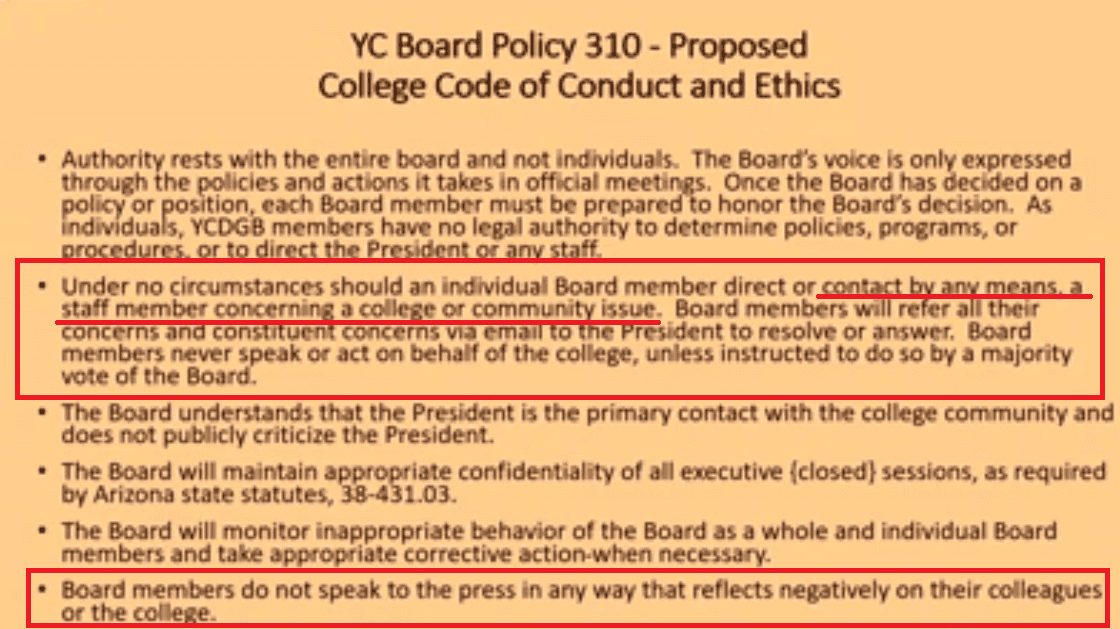Editorials & Opinions
Yavapai Community College Faces Backlash for Restricting Faculty and Board Members’ Free Speech

Yavapai Community College is facing significant backlash following the introduction of a controversial policy restricting communication between faculty and the Governing Board. Elected by taxpayers, board members are now limited in their interactions with college staff to formal meetings only, leading to concerns over academic freedom and free speech.
This policy comes amid reports of a conspiracy involving a general manager and other board members to discourage open dialogue between faculty members and elected officials. Faculty are warned against discussing any operational issues outside these formal settings, raising alarming questions about transparency and accountability within the institution.
The implications of this policy may have far-reaching legal consequences, as it potentially violates First Amendment rights. The ability for public employees to communicate freely with their elected representatives is a fundamental aspect of American democracy. Legal experts caution that such restrictions could provoke legal challenges, especially if faculty members are disciplined for voicing concerns.
The recent election also played a role in this context. The ousting of District 1 representative Ray Sigafoos and the recent vacancy created by District 4’s Chris Kuknyo’s resignation have opened opportunities for new leadership within the college’s governing body. Yavapai County Superintendent of Schools Tim Carter is currently seeking applicants to fill the District 4 seat.
Kuknyo’s resignation highlights a shift in focus, emphasizing the importance of collaboration between various levels of government to address pressing community issues such as economic development and housing. He expressed pride in the college’s recent progress under President Lisa Rhine’s leadership.
Individuals interested in applying for the vacant board seat must submit a letter of interest, resume, and optional letters of recommendation by December 2, 2024. Candidates need to be registered voters residing in District 4, further reflecting the community’s involvement in the decision-making process.
The process will involve a five-member Candidate Review Committee, composed of diverse community representatives, to evaluate applicants and gather public opinions on potential candidates. A final decision is expected by December 18, 2024, with the appointed individual beginning their term on January 1, 2025.
As the college navigates these changes, it remains to be seen whether the newly elected board will reconsider its restrictive communication policy. Stakeholders are hopeful that transparent dialogue will be restored, ensuring the needs of students and taxpayers are prioritized.


















